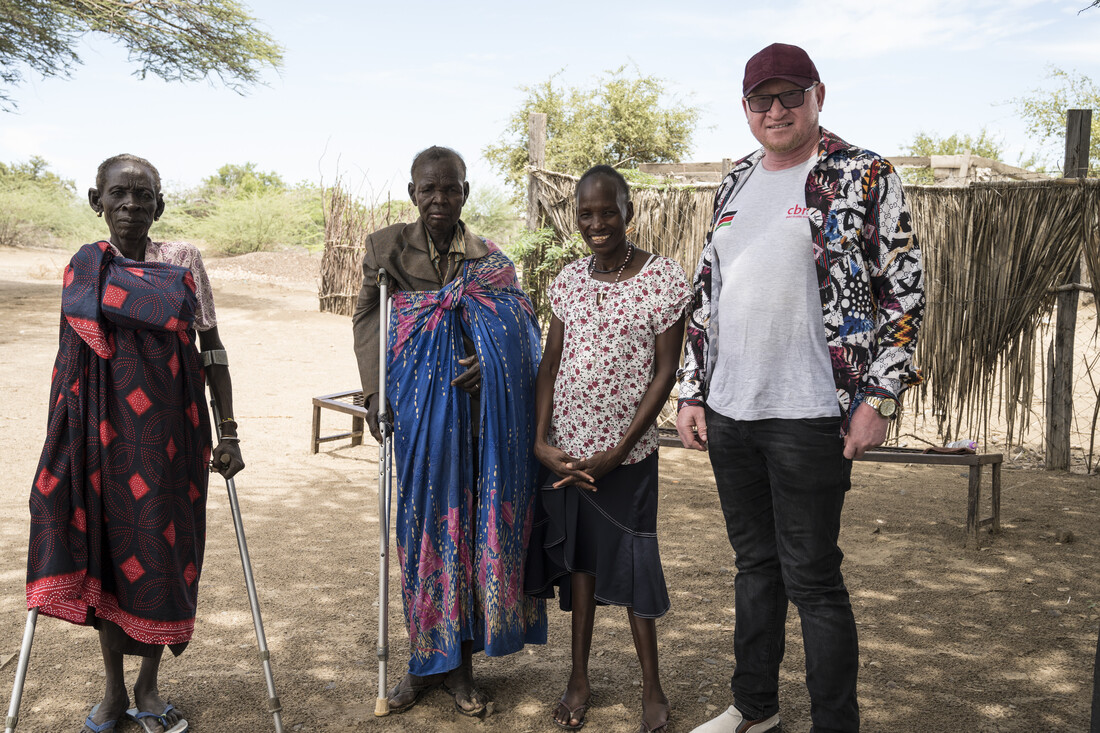Climate change will lead to increased eye disease
Stories | February 11, 2022
Organisations whose mission is to improve eye health and prevent blindness across the world need to be at the forefront of reducing their negative impact on the environment.
Global rates of vision impairment are on the rise, disproportionately affecting the most vulnerable. CBM has been a leading advocate in ensuring climate change was included on the agenda of the International Agency for the Prevention of Blindness (IAPB). This led to the release of the Guide for Environmentally Sustainable Practices in The Eye Health Sector accompanied by a Call to Action to mark Earth Day 2021.
Environmental degradation, air pollution and climate change are having devastating impacts in all parts of the world, with the greatest effect on vulnerable and low-income communities, threatening to undo decades of progress in global health. Eye health will be affected.
By outlining 10 key areas for action, the guide empowers eye care providers to make sustainable changes to their practice. As the guide states:
“Early studies have shown that high temperature and low rainfall – both more likely because of climate change – are associated with an increase in trachoma infection. Vitamin A deficiency is predicted to rise due to a likely increase in food insecurity.
“Global warming may play a part in early onset and accelerated progression of cataract. There is an association between traffic-related air pollution and severe allergic eye diseases glaucoma and age-related macular degeneration. Extreme weather events will lead to an increase in physical injuries, including eye injuries, and will likely affect those with visual impairment and disabilities disproportionately.”
CBM works to ensure that the most vulnerable have access to eye health; that eye health systems are accessible, inclusive and sustainable by being mainstreamed into government health initiatives. This is to prevent avoidable blindness and ensure those with permanent visual impairment or blindness are not left behind. From this call to action it is clear that we cannot commit to work toward the prevention of eye disease and avoidable blindness without also working in harmony with the environment.
CBM Australia supports inclusive eye health with partners in Bangladesh, Indonesia, Nepal, Philippines, Papua New Guinea, Cameroon and Nigeria.
CBM acknowledges the support of the Australian Government through the Australian NGO Cooperation Program (ANCP).
https://www.cbm.org.au/stories/climate-change-will-lead-to-increased-eye-disease
Related Stories

Week 7 – Lent Series 2025
A solidarity of love, relationship and sacrifice. A solidarity that is profound and astounding. As we draw near to Good Friday, we remember Jesus’ love and...

Week 6 – Lent Series 2025
Solidarity Leads to Partnership Partnership with people with disabilities is working alongside them to build an inclusive and accessible world. CBM Australia works to improve the...

Week 5 – Lent Series 2025
Solidarity: Seeking to Listen and Understand Action that is taken in solidarity finds its origins in listening. Jesus’ actions and ministry flowed out of relationship and...
